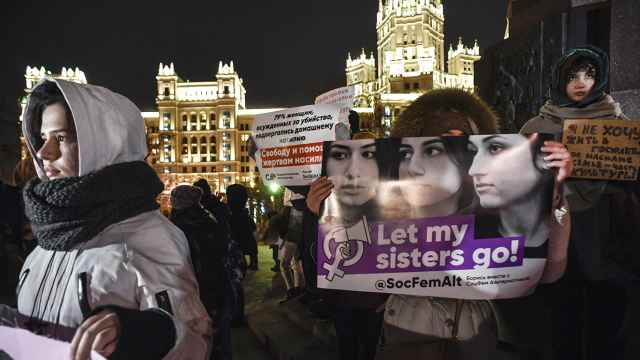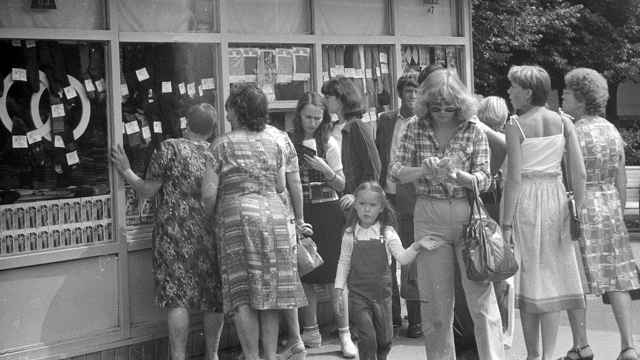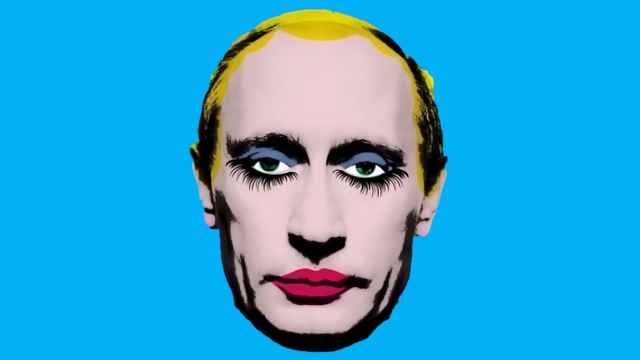Russia and Western nations continue to be divided over issues such as Syria and missile defense systems.
Psychological and ideological traits of national leaders do not fully explain this divide. The larger cause of divide between Russia and the West is a disagreement between national elites over emerging world order. Western nations continue to perceive themselves as the leading part of the world. In their perception, they hold the key to the global financial architecture, possess the most powerful military capabilities and are institutionally superior to Russia and rising powers.
The Kremlin expects Western nations to stop their assertive projection of power, such as democracy promotion and NATO expansion.
But Russia focuses on the West's limited ability to project global power. In Russia's view, the 2008 Russia-Georgia War undermined the West's monopoly for use of force in world politics. In addition, the global financial meltdown revealed the West's economic vulnerability. The Kremlin anticipates a new power balance and acts assertively to promote Russia's values and interests.
When Dmitry Medvedev was president, he attempted to improve relations with the West by focusing on nuclear nonproliferation and economic development. U.S. President Barack Obama and European leaders wanted to work with Medvedev, but they expected Moscow to follow their lead and dismissed Russia's proposal for a new all-European treaty and warnings from the Kremlin that a new arms race may take place should Russia and the Western nations fail to cooperate on missile defense.
After returning to the Kremlin, President Vladimir Putin continued to try to find a new role for Russia in the international system by challenging the established position of Western nations. In February, Russia released a new foreign policy conception that contained the ideas of transition toward a multipolar structure of the international system. The document emphasized global competition, in which different "values and development models" would be tested and "civilization identity" would obtain a new importance. Russia is beginning to see itself as culturally and politically independent from the West.
By assuming the end of Western domination and U.S. "unipolarity" in the international system, the Kremlin developed new expectations about the West. In particular, it expects Western nations to put an end to their assertive projection of power and values. Projects such as NATO expansion and democracy promotion are to be replaced by coordination of Western policies with other powers as equal participants in shaping world order. The Kremlin anticipates growing opportunities for promoting its interests and values outside of Europe and the U.S. and is prepared to exercise its options independently if the West chose to ignore Russia's new international ambitions.
This worldview by the Kremlin makes little room for cooperation between the West and Russia, and the West, too, feels it has no ground to concede. Not only are Western leaders convinced of the superiority of their values, but they are also skeptical of Russia's ability to sustain its ambitions and view Russia as fundamentally weakened by the competition of rival clans within the Kremlin.
Neither side is realistic in its assessment and expectations. Russia overstates the "multipolarity" argument, while the West is dismissive of Moscow's role in the international system. Both sides occasionally make adjustments in their exaggerated world views, but neither one is willing to offer a bold vision of tackling the world's problems jointly out of fear of risking their relations with domestic constituencies. True leadership is missing on both sides and is not likely to appear any time soon.
Although Russia and the West will continue to cooperate on some issues, it is difficult to see any meaningful agreement on issues pertinent to the structure of emerging international order. The two sides are likely to view their influence on critically important nations such as Syria, Ukraine or Uzbekistan in mutually exclusive terms.
The gap in perceptions will shape disagreements for years to come. For this gap to be reduced, a new world order must take shape. Before the sides will reassess the benefits of cooperation, new boundaries of influence and control will have to be drawn. The post-Western century is coming, as Moscow, Beijing, Tehran, Delhi and others are figuring out their role in this new structure. For now, that role remains unclear because international transitions are difficult and take time.
Andrei Tsygankov is professor of international relations and political science at San Francisco State University.
A Message from The Moscow Times:
Dear readers,
We are facing unprecedented challenges. Russia's Prosecutor General's Office has designated The Moscow Times as an "undesirable" organization, criminalizing our work and putting our staff at risk of prosecution. This follows our earlier unjust labeling as a "foreign agent."
These actions are direct attempts to silence independent journalism in Russia. The authorities claim our work "discredits the decisions of the Russian leadership." We see things differently: we strive to provide accurate, unbiased reporting on Russia.
We, the journalists of The Moscow Times, refuse to be silenced. But to continue our work, we need your help.
Your support, no matter how small, makes a world of difference. If you can, please support us monthly starting from just $2. It's quick to set up, and every contribution makes a significant impact.
By supporting The Moscow Times, you're defending open, independent journalism in the face of repression. Thank you for standing with us.
Remind me later.





